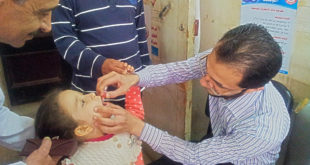Issue 30, summer/fall 2020 https://doi.org/10.70090/AA203PEC Abstract The study investigates respondents’ perception of the negative effects of US drama binge-watching on their cultural values as compared with its perceived effects on the cultural values of others. The study helps in understanding the extent to which Arab residents in the United Arab …
Read More »Digitalism, Capitalism, and Contemporary Transformations in Academic Work: An Evaluative Study of Risks and Opportunities (Arabic)
Issue 30, summer/fall 2020 https://doi.org/10.70090/ASFS29DC Scroll down for the Arabic abstract. Modern universities have always been an embedded part of capitalism in political, economic, and cultural terms. Situated in this economic and political context, this study's overall task was to analyze and evaluate the critical literature reviews that have …
Read More »The Impact of Social Networking Site Use on Social Capital and Happiness: A Field Study of Arab and Non-Arab Residents in the UAE (Arabic)
Issue 30, summer/fall 2020 https://doi.org/10.70090/SOA29SCH Scroll down for the Arabic abstract. As social networking sites (SNSs) grow in size across the United Arab Emirates, they are increasingly utilized as avenues for social partnership and sustainable development. These networks are also used as a means of creating social cohesion among the …
Read More »Knowledge and Social Change: Impact of 40 Years of Health and Population Communication in Egypt
Issue 28, summer/fall 2019 https://doi.org/10.70090/FEK28KSC Abstract The main objective of this paper is to seek an answer to an important research question: Why did some communication campaigns on health and population issues in Egypt succeed, while others failed to make the desired impact on behavior and subsequent outcomes, such as …
Read More »A Critical Analysis of the Dialectic Science-Religion Relationship in Popular Science Show Discourse
Issue 28, summer/fall 2019 https://doi.org/10.70090/EAR28CAD Abstract In light of the advancing digital environment and the interest in boosting scientific content published on digital platforms, this paper seeks to define and critically analyze the discourse of popular science shows (henceforth, “PSS”). Considering the fact that religion serves as a major foundational …
Read More »The Earth Turns and the World has Changed: Egyptian and Arab Science Journalism in the Digital Age
Issue 28, summer/fall 2019 https://doi.org/10.70090/MYG28SJD Abstract Science journalism in Egypt reflects the way science is taught, perceived and practiced in the country. Online publications cover science and technology in different ways. Yet, all of them rely on translators as most of the science stories are sourced from foreign outlets. This …
Read More »BOOK REVIEW | Young People and the Future of News: Social Media and the Rise of Connective Journalism
Issue 26, summer/fall 2018 https://doi.org/10.70090/HB18FNSM What do school reform, presidential elections, LGBTQ rights, globalization, police brutality, and a Boston casino have in common:? They have all been the impetus behind youth participating, communicating, and practicing forms of connective journalism in the United States. This, in brief, is the main argument …
Read More »Infantilizing Arab politics: A quick reading of the viral Ramadan 2018 Zain telecom ad
Issue 26, summer/fall 2018 https://doi.org/10.70090/OAG18IAP Since 2011, the Kuwaiti telecom company Zain Group, one of the largest in the Middle East, has produced a series of popular ads broadcast annually during Ramadan. The ads are songs, usually featuring celebrities singing and dancing with children. Since 2015, the ads have become …
Read More »Egyptian Youth: Networked Citizens But Not Fully Engaged Politically
Issue 26, summer/fall 2018 https://doi.org/10.70090/NA18EYNC Abstract One lesson learned from Egypt’s 2011 uprising was that young people are highly active politically as witnessed by the emergence of the networked young citizen. As the country became more stable it was feared that members of this participatory culture would reject formal politics …
Read More »Mohammed Assaf’s victory five years on: Arab Idol and the Zionist colonization of Palestine
Issue 26, summer/fall 2018 https://doi.org/10.70090/LB18MAVA Abstract This essay, based on the author’s fieldwork on Palestinian music and oral history, examines the position of singer and Arab Idol winner Mohammed Assaf in relation to the contemporary Palestinian struggle and the wider play of power in the Arab world. The issues discussed …
Read More » Arab Media & Society The Arab Media Hub
Arab Media & Society The Arab Media Hub










